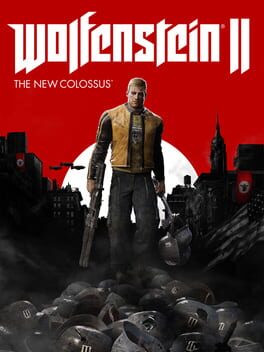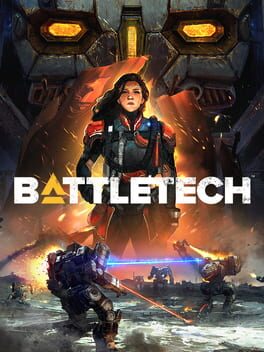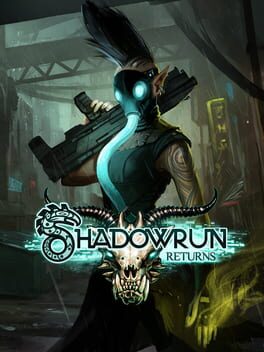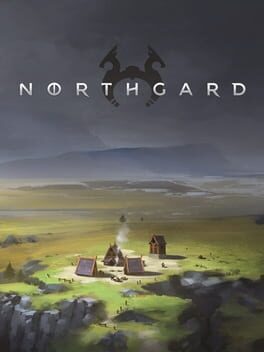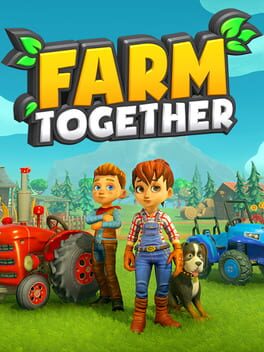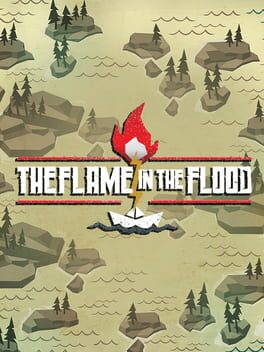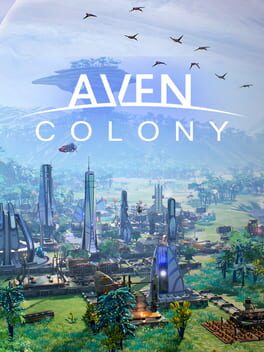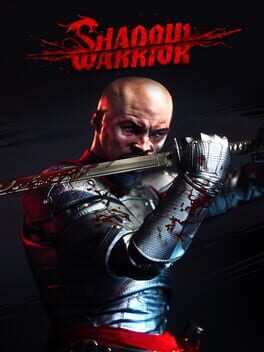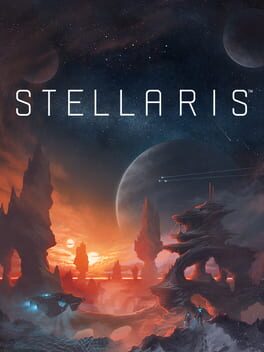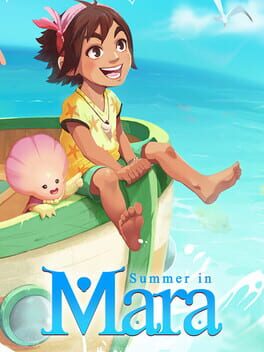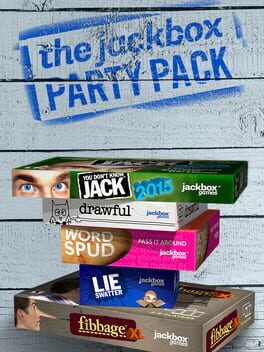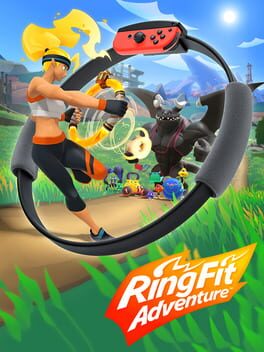astarrgames
This is really great as both an alternative history story and Nazi killing simulator.
I'm playing this right after Wolfenstein: The New Order and The Old Blood, and it plays like both with some great improvements. The combat can either be stealthy or with guns blazing, while some missions for you to the latter. I really loved Doom 2016 and thought this Bethesda title would be similar for having full speed shootouts. It's not. Stealth is not required but it is heavily weighed to take the game more slowly, watching for soldier patterns and behaviours before engaging. However, the patience always pays off when you're thrust into a high-adrenaline chase or a mission where you're exposed and have to fight your way out.
All combat styles have their rewards with perks and weapon upgrades, which add more flavour to fights and put the balance in your favour. The enemy balance is great, when you're gradually introduced to harder enemies that aren't just base enemies with additional health.
Edit: I originally wrote this complaining about collectables making the game uninteresting or frustrating, because you can find hidden items obscurely placed throughout every map that you revisit twice. It turns out that 1) I'm an achievement hunter which prevents me from having fun in games sometimes, and 2) You can revisit levels at the end of the game. So enjoy your play through and the tid-bits of things you do find laying around maps, then revisit if you want to.
The mission and level design is all very well done and allow for the diverse play styles. There is some repetitiveness when you can revisit some maps for additional, although optional missions. While still optional, this game does suffer from collectables/secrets very obscurely hidden throughout it, which make it tedious for people who want achievements - they don't add perks though which is good.
As for the alternative history aspect, the story continues on from the over-the-top science fiction of The New Order moreso than the horror or the occult of The Old Blood. This game ups the ante by making the sci-fi way more ridiculous and beautifully blends in American action tropes - like having something land on Billy's head every other story beat.
This game is definitely in conversation with our currently political landscape, which is why you have fascist sympathizers outraged over another game villifying Nazis and fans making promo ads splicing in anti-fascists punching out neo-Nazis. To continue with the ridiculous action movie elements Wolfenstein has, the dialogue is very heavy with one-liners and weird tones. There's fantastic exchanges between soldiers if you sneak up on them, when go from discussing their alienated labour, conspiracy theories, and their takes on race and sexuality. There's even a few hilarious interaction between a Nazi soldier and doting southern state American Ku Klux Klan members, which I feel is the highlight of bringing this story to the USA. There's still an emotional depth and grounding of the story, which does change the tone at times from a goofy action game to something that is having an important conversation with white masculinity when Billy's history is explored on the game. Although, my only problem with the tone is how Billy interacts with Black characters as they're finally introduced, as there a major segment of US history Billy has been absent for.
That said, this is such a fun and exciting game. It'll make you laugh, maybe cry, but most importantly, teach you about how Nazis will act when they take over the United States and how to effectively butcher them with hatchets.
I'm playing this right after Wolfenstein: The New Order and The Old Blood, and it plays like both with some great improvements. The combat can either be stealthy or with guns blazing, while some missions for you to the latter. I really loved Doom 2016 and thought this Bethesda title would be similar for having full speed shootouts. It's not. Stealth is not required but it is heavily weighed to take the game more slowly, watching for soldier patterns and behaviours before engaging. However, the patience always pays off when you're thrust into a high-adrenaline chase or a mission where you're exposed and have to fight your way out.
All combat styles have their rewards with perks and weapon upgrades, which add more flavour to fights and put the balance in your favour. The enemy balance is great, when you're gradually introduced to harder enemies that aren't just base enemies with additional health.
Edit: I originally wrote this complaining about collectables making the game uninteresting or frustrating, because you can find hidden items obscurely placed throughout every map that you revisit twice. It turns out that 1) I'm an achievement hunter which prevents me from having fun in games sometimes, and 2) You can revisit levels at the end of the game. So enjoy your play through and the tid-bits of things you do find laying around maps, then revisit if you want to.
The mission and level design is all very well done and allow for the diverse play styles. There is some repetitiveness when you can revisit some maps for additional, although optional missions. While still optional, this game does suffer from collectables/secrets very obscurely hidden throughout it, which make it tedious for people who want achievements - they don't add perks though which is good.
As for the alternative history aspect, the story continues on from the over-the-top science fiction of The New Order moreso than the horror or the occult of The Old Blood. This game ups the ante by making the sci-fi way more ridiculous and beautifully blends in American action tropes - like having something land on Billy's head every other story beat.
This game is definitely in conversation with our currently political landscape, which is why you have fascist sympathizers outraged over another game villifying Nazis and fans making promo ads splicing in anti-fascists punching out neo-Nazis. To continue with the ridiculous action movie elements Wolfenstein has, the dialogue is very heavy with one-liners and weird tones. There's fantastic exchanges between soldiers if you sneak up on them, when go from discussing their alienated labour, conspiracy theories, and their takes on race and sexuality. There's even a few hilarious interaction between a Nazi soldier and doting southern state American Ku Klux Klan members, which I feel is the highlight of bringing this story to the USA. There's still an emotional depth and grounding of the story, which does change the tone at times from a goofy action game to something that is having an important conversation with white masculinity when Billy's history is explored on the game. Although, my only problem with the tone is how Billy interacts with Black characters as they're finally introduced, as there a major segment of US history Billy has been absent for.
That said, this is such a fun and exciting game. It'll make you laugh, maybe cry, but most importantly, teach you about how Nazis will act when they take over the United States and how to effectively butcher them with hatchets.
2018
I grew up playing the Mechcommander games and was excited for this, until I heard it was turn-based strategy. I tried it out on a free weekend and took it off my wishlist. I ended up getting it with a Humble Bundle and really gave it a shot past the first two missions.
Harebrained Schemes are great at storytelling, considering the Shadowrun series. They took what could have been a generic robot-shooter game and placed you in the middle of the expansive Battletech universe to play through one experience in what could have been thousands. The writing makes you feel like a part of it, and that the characters matter. That is if you choose to dialogue with them, which I highly recommend.
The only TBS I had experience with were X-Com and some RPG games, and the genre usually turns me off because it feels slow, unfair and based on random numbers that are literally hit-or-miss. So, I tried this after a few missions and really began to enjoy the TBS and feel it was an appropriate adaptation of a mech game - especially considering it's derived from a tabletop. As an action game, it feels very good to position and reposition your squad and to take objectives, as much as any isometric action game. The accuracy of your weapons make perfect sense, taking advantage of distances, elevation and structures to retreat, flank, and engage in direct battles, and it really feels fair if you take a chance at shooting a mech in cover and miss. I think back to my Mechcommander days and figure that this is how my missions would play out, except that I have to choose to end turns. It would feel fair that my light took some hits while scouting, and that my heavies could come through the hills to take and receive some as well. This is all because of how you build your mech in the mechlab and which mechwarrior you choose to place in the mech.
The skill trees are well balanced and the mechlab are follows the already well thought out design of a Mechwarrior/Mechcommander game, but a simpler version. There's the usual specifications for mechs between armour, weapons, hardpoints, and equipment, and they made the salvage system feel rewarding and exciting to take parts to the mechlab. The mechwarrior skill trees make sense for balancing the power of firing, taking damage, keeping the mech stable, and calling specific shots on enemies between passive and active skills. There are options to mix and all of these help with building the mech you want and what squads you will send out.
My only complaint is that loads are long, when loading a save, loading a contract then loading the mission. It almost freezes to the point I can't use background apps during the loads, and I'm on a AMD Ryzen 5, with a GTX 1080 and 8GB RAM. I understand that it's developed in Unity, and the landscapes and models really feel like they're constructed with very fine detail. In fact the game looks beautiful for an isometric shooter, and I didn't realize this until I zoomed in, called some orders on my mechs to move and blow up a building, and then watched it crumble to pieces. I'm not sure if the loading feels this bad because the game is actually larger than I thought, or because of optimization. Beyond that, some UI features feel like they're missing, like you can get ready to move a mech, see it's possible positions, line of sight and accuracy of hits, but you can't find the range of a Mech, even after displaying
I'm excited to get through the campaign of this game, go through the expansions and just play, because both the management of a mech squad feels just as great as the strategy and action in missions.
Harebrained Schemes are great at storytelling, considering the Shadowrun series. They took what could have been a generic robot-shooter game and placed you in the middle of the expansive Battletech universe to play through one experience in what could have been thousands. The writing makes you feel like a part of it, and that the characters matter. That is if you choose to dialogue with them, which I highly recommend.
The only TBS I had experience with were X-Com and some RPG games, and the genre usually turns me off because it feels slow, unfair and based on random numbers that are literally hit-or-miss. So, I tried this after a few missions and really began to enjoy the TBS and feel it was an appropriate adaptation of a mech game - especially considering it's derived from a tabletop. As an action game, it feels very good to position and reposition your squad and to take objectives, as much as any isometric action game. The accuracy of your weapons make perfect sense, taking advantage of distances, elevation and structures to retreat, flank, and engage in direct battles, and it really feels fair if you take a chance at shooting a mech in cover and miss. I think back to my Mechcommander days and figure that this is how my missions would play out, except that I have to choose to end turns. It would feel fair that my light took some hits while scouting, and that my heavies could come through the hills to take and receive some as well. This is all because of how you build your mech in the mechlab and which mechwarrior you choose to place in the mech.
The skill trees are well balanced and the mechlab are follows the already well thought out design of a Mechwarrior/Mechcommander game, but a simpler version. There's the usual specifications for mechs between armour, weapons, hardpoints, and equipment, and they made the salvage system feel rewarding and exciting to take parts to the mechlab. The mechwarrior skill trees make sense for balancing the power of firing, taking damage, keeping the mech stable, and calling specific shots on enemies between passive and active skills. There are options to mix and all of these help with building the mech you want and what squads you will send out.
My only complaint is that loads are long, when loading a save, loading a contract then loading the mission. It almost freezes to the point I can't use background apps during the loads, and I'm on a AMD Ryzen 5, with a GTX 1080 and 8GB RAM. I understand that it's developed in Unity, and the landscapes and models really feel like they're constructed with very fine detail. In fact the game looks beautiful for an isometric shooter, and I didn't realize this until I zoomed in, called some orders on my mechs to move and blow up a building, and then watched it crumble to pieces. I'm not sure if the loading feels this bad because the game is actually larger than I thought, or because of optimization. Beyond that, some UI features feel like they're missing, like you can get ready to move a mech, see it's possible positions, line of sight and accuracy of hits, but you can't find the range of a Mech, even after displaying
I'm excited to get through the campaign of this game, go through the expansions and just play, because both the management of a mech squad feels just as great as the strategy and action in missions.
2013
I thought this story was going to be a generic murder mystery, but it turned into something else that was very interesting. It seems like the dialogue choices are flavour-text, or grants access to some more items but doesn't change the overall game outcome. That's totally fine for a game that wants to tell this story.
Character creation is based solely around combat, and whatever classes or skills you don't take on, you can fill with teammates and mercenaries. The combat is fine for a turn-based strategy game. It can force you to diversify your team between the cyberdeck, magic, or weapon user, and the random-number game actually makes sense. I've played other TBS games that are frustrating and encourage save-scumming by having an unfair RNG, where everything hits you but you can't hit anything. This one makes sense because you can have supports buff/debuff combatants, take cover, and flank appropriately, while your enemies are trying to do the same.
A couple of pieces of advice on combat to make the game more fun: use items liberally, because you'll always find more. Focus on what you want to fight as and spend money to fill in the gaps you need. I found myself at the end of the game with way too many consumables and cash, while playing conservatively in fights which deprived me of having a lot more fun in this game.
The artwork looks great, between portraits and 3D models. It really sets the mood for a dystopia, and the NPC text really fills out the world to give an accurate picture of the huge world Shadowrun is. The writers really did a lot of work to make you feel like you're within one story in a large universe that has a history and has been lived in - without a prologue or unrealistic text-dump from an NPC.
Character creation is based solely around combat, and whatever classes or skills you don't take on, you can fill with teammates and mercenaries. The combat is fine for a turn-based strategy game. It can force you to diversify your team between the cyberdeck, magic, or weapon user, and the random-number game actually makes sense. I've played other TBS games that are frustrating and encourage save-scumming by having an unfair RNG, where everything hits you but you can't hit anything. This one makes sense because you can have supports buff/debuff combatants, take cover, and flank appropriately, while your enemies are trying to do the same.
A couple of pieces of advice on combat to make the game more fun: use items liberally, because you'll always find more. Focus on what you want to fight as and spend money to fill in the gaps you need. I found myself at the end of the game with way too many consumables and cash, while playing conservatively in fights which deprived me of having a lot more fun in this game.
The artwork looks great, between portraits and 3D models. It really sets the mood for a dystopia, and the NPC text really fills out the world to give an accurate picture of the huge world Shadowrun is. The writers really did a lot of work to make you feel like you're within one story in a large universe that has a history and has been lived in - without a prologue or unrealistic text-dump from an NPC.
2018
It's alright.
It feels like a very introductory city-builder/real-time-strategy. Basically, you manage 3 renewable resources and interchangeable workers/soldiers, not unlike a 90's RTS. The city building is limited to about 9 non-military buildings, some of which you may never even build in a game. Then to make the game a little bit more complex, there's 2 advanced resources for other projects and 3 different types of perk trees with their own paths, each dependent on the clan you choose.
It's a pretty game with decent music that doesn't feel repetitive. It has a very simple and accessible user interface. The difficulty scales by numbers, which means the harder the difficulty, there'll be +1 wolf or +1 bear per region.
For a veteran RTS/4X/City-building fan, I find it pretty boring. However, this is something I could share with family as an easy, fun strategy game to step into other games of the genre, or just put hours and hours into.
I still recommend it because it does what it's supposed to very well and the free play can generate a lot of fun, quick games.
It feels like a very introductory city-builder/real-time-strategy. Basically, you manage 3 renewable resources and interchangeable workers/soldiers, not unlike a 90's RTS. The city building is limited to about 9 non-military buildings, some of which you may never even build in a game. Then to make the game a little bit more complex, there's 2 advanced resources for other projects and 3 different types of perk trees with their own paths, each dependent on the clan you choose.
It's a pretty game with decent music that doesn't feel repetitive. It has a very simple and accessible user interface. The difficulty scales by numbers, which means the harder the difficulty, there'll be +1 wolf or +1 bear per region.
For a veteran RTS/4X/City-building fan, I find it pretty boring. However, this is something I could share with family as an easy, fun strategy game to step into other games of the genre, or just put hours and hours into.
I still recommend it because it does what it's supposed to very well and the free play can generate a lot of fun, quick games.
2018
It's a clicker farming simulator for your PC. It has decent mechanics and progression, but can feel very lonely if you're not with friends or a community. There's no real NPCs on the map to give it life, and it can be a pretty repetitive loop. If you're willing to get sucked into a mobile app - granted a way better looking and more fair one that won't rob you - then check this out.
I had this game on my wishlist for a while because it looked great, then it was offered free from HB for a bit. I should have actually bought it because it is such a great game.
It's a rouge-like dungeon crawler, except your fast-travel world is a river you navigate on a raft and your dungeons are campsites, ghost towns and abandoned marinas. I finished the campaign and did some endless river, and really enjoyed both. The campaign's story is vague but neat and really puts the drive into continuing. I felt it very appropriate that I crawled my way to the end after being mauled half to death, but I made it.
There's some glitchy-ness that happens, both in design and mechanically. By design, in the campaign I had no missions until I was pretty much done the game and didn't need to craft anything for the mission's rewards. I hit a couple of bugs that forced me to restart from the last checkpoint, which was when I'd fill a jug of water from my raft it stick me there without any movement options. Then there's some minor invisible-wall issues for your character and animals, which just don't feel comfortable rather than game-breaking. I unfortunately discovered how to give yourself an invisible never-ending-torch.
The music is incredible. I'm a big Hot Water Music and Chuck Ragan fan, and didn't realize it was his compositions until the first song with vocals hit. There's a lot of instrumental atmospheric tracks with a bit of acoustic twang to make you feel the rural environment, then there's faster, folky tracks that pick up the pace alongside rafting the rapids or being chased by wolves. My gripe with the soundtrack though is that when it ends, it doesn't pick back up until you enter your raft again.
Trap placement and the bow feel clunky, but I really feel that's worth it. It would be unbalanced to have a lone survivor kill a group of wolves like they're firing a semi-automatic in a barren, flooded apocalypse. I've played both Kb+m and Xbox controller for this game, and they both feel fine. I died a lot in the campaign, but it was really worth it. Either I didn't prioritize making space and time for food, or I thought I could take on a bear with a single trap and a bow. There's a real feeling of dread when you realize you didn't prepare any antidote for that snake bite, and you're rushing to campsites to find a missing ingredient. That's part of this game, and it makes it fun.
Great job Molasses Flood!
It's a rouge-like dungeon crawler, except your fast-travel world is a river you navigate on a raft and your dungeons are campsites, ghost towns and abandoned marinas. I finished the campaign and did some endless river, and really enjoyed both. The campaign's story is vague but neat and really puts the drive into continuing. I felt it very appropriate that I crawled my way to the end after being mauled half to death, but I made it.
There's some glitchy-ness that happens, both in design and mechanically. By design, in the campaign I had no missions until I was pretty much done the game and didn't need to craft anything for the mission's rewards. I hit a couple of bugs that forced me to restart from the last checkpoint, which was when I'd fill a jug of water from my raft it stick me there without any movement options. Then there's some minor invisible-wall issues for your character and animals, which just don't feel comfortable rather than game-breaking. I unfortunately discovered how to give yourself an invisible never-ending-torch.
The music is incredible. I'm a big Hot Water Music and Chuck Ragan fan, and didn't realize it was his compositions until the first song with vocals hit. There's a lot of instrumental atmospheric tracks with a bit of acoustic twang to make you feel the rural environment, then there's faster, folky tracks that pick up the pace alongside rafting the rapids or being chased by wolves. My gripe with the soundtrack though is that when it ends, it doesn't pick back up until you enter your raft again.
Trap placement and the bow feel clunky, but I really feel that's worth it. It would be unbalanced to have a lone survivor kill a group of wolves like they're firing a semi-automatic in a barren, flooded apocalypse. I've played both Kb+m and Xbox controller for this game, and they both feel fine. I died a lot in the campaign, but it was really worth it. Either I didn't prioritize making space and time for food, or I thought I could take on a bear with a single trap and a bow. There's a real feeling of dread when you realize you didn't prepare any antidote for that snake bite, and you're rushing to campsites to find a missing ingredient. That's part of this game, and it makes it fun.
Great job Molasses Flood!
2017
This is a fairly well-done and very pretty city-builder that is both lacking in content and overstaying its welcome. In the game's campaign, I've shelved it during the seventh of the nine missions, without trying the sandbox or challenge modes.
Aven Colony does what I like with city-builders: constructing and connecting buildings, managing a population's well-being, completing small objectives throughout a mission in a story and expanding out of necessity. It feels like a combination of Anno, Surviving Mars and Tropico. However, it's a relief to manage an economy that actually depends on what you produce, instead of trade or money, with the stand-in being nanites - a resource that makes sense in this world.
I had a great time with the first half. The learning curve is fairly low, and my poor choices in city planning throughout the first couple of missions were easily forgiven. Some mechanics weren't explained to me until I went on to forums to get my questions answered. I may have overlooked something in the tutorial, but I was missing information in the UI.
Every mission, I would start out with developing a small way of producing resources for the colony, mining to develop nanites, and farming or extracting water for the colonists. When I began expanding, I needed to find sources for generating electricity, build places to increase colonist health and morale, place defensive structures, and prepare for the last phase of the mission. The final part of any mission, outside of a specific victory condition, would be to explore outside of my immediate colony, like Frostpunk and invest in the late-game buildings, which typically end up being a combination of perks from other buildings (increases to morale, electricity, population growth and capacity, or storage).
But that's it. I've used every building I need, and typically would make similar-looking suburbs, wrapped around a resource on the map I needed. Each one being a replica of the previous one, except centered around an electrical or farming source. The mechanics of the game are very limited, in which something like Cities: Skylines would have entire industries or panels that could be ignored, every single building in Aven Colony is unfortunately necessary. It's unfortunate, because every map can be played the exact same, except with different resource placements.
It's a well-done game, but it lacks anything new to keep me going - even the story won't retain me. (there's a very weird and gross scene of this toxic space workplace early in the game that really put me off of caring about the characters or story behind this colonialist mission) While a good builder to start with, this game doesn't have enough to make it great and retain my interest in finishing it.
Aven Colony does what I like with city-builders: constructing and connecting buildings, managing a population's well-being, completing small objectives throughout a mission in a story and expanding out of necessity. It feels like a combination of Anno, Surviving Mars and Tropico. However, it's a relief to manage an economy that actually depends on what you produce, instead of trade or money, with the stand-in being nanites - a resource that makes sense in this world.
I had a great time with the first half. The learning curve is fairly low, and my poor choices in city planning throughout the first couple of missions were easily forgiven. Some mechanics weren't explained to me until I went on to forums to get my questions answered. I may have overlooked something in the tutorial, but I was missing information in the UI.
Every mission, I would start out with developing a small way of producing resources for the colony, mining to develop nanites, and farming or extracting water for the colonists. When I began expanding, I needed to find sources for generating electricity, build places to increase colonist health and morale, place defensive structures, and prepare for the last phase of the mission. The final part of any mission, outside of a specific victory condition, would be to explore outside of my immediate colony, like Frostpunk and invest in the late-game buildings, which typically end up being a combination of perks from other buildings (increases to morale, electricity, population growth and capacity, or storage).
But that's it. I've used every building I need, and typically would make similar-looking suburbs, wrapped around a resource on the map I needed. Each one being a replica of the previous one, except centered around an electrical or farming source. The mechanics of the game are very limited, in which something like Cities: Skylines would have entire industries or panels that could be ignored, every single building in Aven Colony is unfortunately necessary. It's unfortunate, because every map can be played the exact same, except with different resource placements.
It's a well-done game, but it lacks anything new to keep me going - even the story won't retain me. (there's a very weird and gross scene of this toxic space workplace early in the game that really put me off of caring about the characters or story behind this colonialist mission) While a good builder to start with, this game doesn't have enough to make it great and retain my interest in finishing it.
2015
I'm not big into casual gaming and I'm just a little too young to feel nostalgia for Pong and arcade games of this era, So retro games don't appeal to me, but I was recommended this by a friend.
It's fast-paced, and the difficulty levels change the dynamics drastically. It won't be a relaxed game of Pong with some Alien Invasion elements; it's mellowest moments will still have you seeking powerups, watching for the ball to bounce back, and watching for enemy powerups.
I have yet to play with a human, but I'm sure it makes for a fun game on local co-op, much like arcade games would. I recommend it because it is replayable, challenging and fun!
It's fast-paced, and the difficulty levels change the dynamics drastically. It won't be a relaxed game of Pong with some Alien Invasion elements; it's mellowest moments will still have you seeking powerups, watching for the ball to bounce back, and watching for enemy powerups.
I have yet to play with a human, but I'm sure it makes for a fun game on local co-op, much like arcade games would. I recommend it because it is replayable, challenging and fun!
2013
I was glad I was done this game when I finished. I found it really boring and repetitive by the last few chapters. Outside of a few memorable and epic fights, I felt this was a real long drag of levels using the same formula.
The fighting system is great, and the weapons, upgrades and skills are really fun to work with. But the combat encounters don't happen often enough and they become predictable: Entering a large empty room? There's an encounter.
You rarely find enemies straggling around, and when I found this formula, the excitement, nervousness and surprise that I had with the first couple of chapters faded quickly. The aesthetic makes it looks like a horror-action game, but there's really no enemies outside of those large-room encounters. You discover all the enemies outside of bosses halfway through the game, then they just get combined in waves.
When the encounters end, you have to search for a new room you opened up, or the key to open up the locked door you passed by earlier. Backtrack then show up to another similar fight. Those are the limitations of the puzzles that happen in between fights.
I don't have much to say about the story, because I wasn't really engaged. The humour is more mature than the original. They dropped a lot of the orientalist and racist jokes, which give it some points.
If people are saying that SW1 is better than SW2, I won't even try that out.
The fighting system is great, and the weapons, upgrades and skills are really fun to work with. But the combat encounters don't happen often enough and they become predictable: Entering a large empty room? There's an encounter.
You rarely find enemies straggling around, and when I found this formula, the excitement, nervousness and surprise that I had with the first couple of chapters faded quickly. The aesthetic makes it looks like a horror-action game, but there's really no enemies outside of those large-room encounters. You discover all the enemies outside of bosses halfway through the game, then they just get combined in waves.
When the encounters end, you have to search for a new room you opened up, or the key to open up the locked door you passed by earlier. Backtrack then show up to another similar fight. Those are the limitations of the puzzles that happen in between fights.
I don't have much to say about the story, because I wasn't really engaged. The humour is more mature than the original. They dropped a lot of the orientalist and racist jokes, which give it some points.
If people are saying that SW1 is better than SW2, I won't even try that out.
2017
This game looks great, sounds great and most importantly - feels great. It's a platformer that has taken the best elements of the early part of the genre, where the movement and combat feels good. Jumping from platform to platform feels nice and forgiving.
I'm nowhere near done the story but I can tell already why this is overwhelmingly positive. After years of Sonic and Mario, I found any other platformer annoying or frustrating, but this feels comfortable and fun.
I'm nowhere near done the story but I can tell already why this is overwhelmingly positive. After years of Sonic and Mario, I found any other platformer annoying or frustrating, but this feels comfortable and fun.
2016
I wanted to get the hang of this before I review it. After 50 hours, 2 failed campaigns, and one late game running constant battles between my federation and two large enemy empires, I think it was about time.
My 4X background was Master of Orion 2 for years throughout the 90's and into the 00's with DOSbox running it on my Windows XP machine. Stellaris feels so much like what MoO4 could be. It even uses a lot of the same terminologies, but expands on the economics, technologies, etc.
So for those without that 4X knowledge, this may seem like a large, confusing game. After installing, I stepped away for a long time because I couldn't figure out what most of the terms were or what I was supposed to do. After using the tutorial to hold my hand entirely through a campaign, a lot of it made perfect sense. Although, some minor aspects aren't taught, such as Empire Sprawl, or Influence Gain. However, there's such a large community that can decipher and explain this stuff very easily.
As a 4X player, I was overwhelmed in one of my failed empires. I had expanded beyond my control, made friends with no one, and when some jerk came around to poke holes into my empire's defenses, I almost caved and deleted my save. However, the combat and AI social behaviours are so forgiving. Despite aggressive species, there will be combinations of events and interactions that impact battles, despite the outcome looking bleak. There's a system of claims and negotiating prior to declaring war, and during wars other species will notice what is happening.
I never expected story in a 4X game that wasn't player-created. I have my stories of "so I let this fleet chase me to a star system where I ambushed them," but there's so much scripted in here. There are story-lines based on your exploration and research, then there's choices within the stories that impact the outcome of that and your empire. I had a failed empire because of some creepy horror story in the game that reminded me of a well-written sci-fi psychological thriller movie.
I'm really glad I gave this chance after chance to learn and engage with, because it's really fun and deep. I haven't tried the multiplayer yet, but I'm very excited for getting my Stellaris friends together to continue learning and campaigning together.
My 4X background was Master of Orion 2 for years throughout the 90's and into the 00's with DOSbox running it on my Windows XP machine. Stellaris feels so much like what MoO4 could be. It even uses a lot of the same terminologies, but expands on the economics, technologies, etc.
So for those without that 4X knowledge, this may seem like a large, confusing game. After installing, I stepped away for a long time because I couldn't figure out what most of the terms were or what I was supposed to do. After using the tutorial to hold my hand entirely through a campaign, a lot of it made perfect sense. Although, some minor aspects aren't taught, such as Empire Sprawl, or Influence Gain. However, there's such a large community that can decipher and explain this stuff very easily.
As a 4X player, I was overwhelmed in one of my failed empires. I had expanded beyond my control, made friends with no one, and when some jerk came around to poke holes into my empire's defenses, I almost caved and deleted my save. However, the combat and AI social behaviours are so forgiving. Despite aggressive species, there will be combinations of events and interactions that impact battles, despite the outcome looking bleak. There's a system of claims and negotiating prior to declaring war, and during wars other species will notice what is happening.
I never expected story in a 4X game that wasn't player-created. I have my stories of "so I let this fleet chase me to a star system where I ambushed them," but there's so much scripted in here. There are story-lines based on your exploration and research, then there's choices within the stories that impact the outcome of that and your empire. I had a failed empire because of some creepy horror story in the game that reminded me of a well-written sci-fi psychological thriller movie.
I'm really glad I gave this chance after chance to learn and engage with, because it's really fun and deep. I haven't tried the multiplayer yet, but I'm very excited for getting my Stellaris friends together to continue learning and campaigning together.
2020
This review contains spoilers
Summer in Mara is a strange game that works very well. I haven't felt this strong of an emotional connection to a game's story or characters since playing through Night in the Woods.
It's strange in the sense that it feels like a children's game, while touching on some very important and complex issues very immediately in the story. Even as an adult, I had difficulty controlling my emotions as I processed themes of [spoiler] losing family, building a community, cruelty in the world and the violent resistance that colonialist climate change necessitates. [/spoiler]
The controls, mechanics and quest design are incredibly elementary. While the game often refers to farming simulation, it is definitely an adventure story where these other mechanics are more incidental to the adventure, than being it's focus. I was never quite sure who this game was for.
The game is based entirely on fetch quests, which is no slight to the game as that is absolutely integral to Summer in Mara. A line that I held on to in this game delivered by the protagonists' family member early in the game was that [spoiler] "this world runs on the cooperation between people." [/spoiler]
Cooperation between people is the thesis and driving force behind why the protagonist is growing corn to feed chickens and harvest their eggs to bake a pie. It's the reason why she is exhausting herself and dedicating her life to building a community among everyone she meets. Absent of external threats to the world, no other video game has really directed and encouraged me to simply help fellow people around you, nor have the world reciprocate this behaviour when I have both demonstrated that mutual aid is the economic system we should be striving for.
In order to do perform this in Summer in Mara, you get to do fun things! The protagonist runs and jumps around, grows and waters crops, drives and upgrades a boat, builds a pen for pigs, feeds and pets animals, hit rocks for crafting materials, goes fishing, dives in the ocean, cooks meals and talks with interesting characters.
The music in the game is absolutely wonderful and properly attuned to the moments in the game and characters you're talking to. There are some odd cues for the music, as every conversation starts a theme song that is a few minutes long and enjoyable, but will be interrupted by talking to another NPC. Other times, there's just the ambience of the ocean and the world that makes me long to hear another one of those incredible songs.
A technical problem I faced in the game was finding NPCs to return items to as the map indicated the wrong locations to me. The main issue I took with the game was that it should be considered an adventure game rather than a farming simulator. Treating it like a Stardew Valley, Farm Together or something similar potentially leads to too much grinding. Quest items then stack and throw the pace of the game off, as you stand there telling an NPC you're going to find them something, then immediately explain that you found or farmed said items. I'm either desperately trying to manage a farm, or overwhelmed with how many resources I have in my inventory - despite the game only making minor requests at times for a very little bit of these throughout the entire game.
When the story completes, there is an endgame mission that [spoiler] encourages to player to continue the farming, fishing and diving cycle of the game. However, without anything else remaining in the narrative, the epilogue falls flat and almost undermines the thesis of the game. [/spoiler]
In the end, I strongly feel that Summer in Mara is an absolute gem and very surprising to me. I was taken aback that treating game mechanics as a chore is an approach that will definitely lead to a negative experience with the game. However, overall, I was impressed with how this game unfolded and am appreciative to have such a great experience that I can't forget.
It's strange in the sense that it feels like a children's game, while touching on some very important and complex issues very immediately in the story. Even as an adult, I had difficulty controlling my emotions as I processed themes of [spoiler] losing family, building a community, cruelty in the world and the violent resistance that colonialist climate change necessitates. [/spoiler]
The controls, mechanics and quest design are incredibly elementary. While the game often refers to farming simulation, it is definitely an adventure story where these other mechanics are more incidental to the adventure, than being it's focus. I was never quite sure who this game was for.
The game is based entirely on fetch quests, which is no slight to the game as that is absolutely integral to Summer in Mara. A line that I held on to in this game delivered by the protagonists' family member early in the game was that [spoiler] "this world runs on the cooperation between people." [/spoiler]
Cooperation between people is the thesis and driving force behind why the protagonist is growing corn to feed chickens and harvest their eggs to bake a pie. It's the reason why she is exhausting herself and dedicating her life to building a community among everyone she meets. Absent of external threats to the world, no other video game has really directed and encouraged me to simply help fellow people around you, nor have the world reciprocate this behaviour when I have both demonstrated that mutual aid is the economic system we should be striving for.
In order to do perform this in Summer in Mara, you get to do fun things! The protagonist runs and jumps around, grows and waters crops, drives and upgrades a boat, builds a pen for pigs, feeds and pets animals, hit rocks for crafting materials, goes fishing, dives in the ocean, cooks meals and talks with interesting characters.
The music in the game is absolutely wonderful and properly attuned to the moments in the game and characters you're talking to. There are some odd cues for the music, as every conversation starts a theme song that is a few minutes long and enjoyable, but will be interrupted by talking to another NPC. Other times, there's just the ambience of the ocean and the world that makes me long to hear another one of those incredible songs.
A technical problem I faced in the game was finding NPCs to return items to as the map indicated the wrong locations to me. The main issue I took with the game was that it should be considered an adventure game rather than a farming simulator. Treating it like a Stardew Valley, Farm Together or something similar potentially leads to too much grinding. Quest items then stack and throw the pace of the game off, as you stand there telling an NPC you're going to find them something, then immediately explain that you found or farmed said items. I'm either desperately trying to manage a farm, or overwhelmed with how many resources I have in my inventory - despite the game only making minor requests at times for a very little bit of these throughout the entire game.
When the story completes, there is an endgame mission that [spoiler] encourages to player to continue the farming, fishing and diving cycle of the game. However, without anything else remaining in the narrative, the epilogue falls flat and almost undermines the thesis of the game. [/spoiler]
In the end, I strongly feel that Summer in Mara is an absolute gem and very surprising to me. I was taken aback that treating game mechanics as a chore is an approach that will definitely lead to a negative experience with the game. However, overall, I was impressed with how this game unfolded and am appreciative to have such a great experience that I can't forget.
For it's time and before the sequels, this was an impressive collection of mini-games. It's introduction is revolutionary for the party game genre, especially as players use their personal devices and a browser, instead of owning the game or sharing controllers. As with all Jackbox Party Packs, these can be rated individually.
You Don't Know Jack is the trivia game, based on the one from the 90's - a multiple choice question with some odd (but fun) choices. The questions are often presented with some gimmick (ie. wrongfully pronounced words) or critical reading requirements, similarly to SATs. There's also a hidden game within the game, where a wrong answer that matches a clue at the beginning of the game will award additional points. Regardless of whether points matter or not, this is a fun game that is limited to four players.
Fibbage XL is a unique trivia game, where the fill-in-the-blank answers are provided by both the game and players. This continues to be an enjoyable game, if you do not get repeated prompts (I still don't think I have after years of playing), despite there being 4 Fibbage games by the 9th pack as well as a stand-alone version of it.
Drawful, similarly to Fibbage, has sequels and a stand-alone version that contribute to this pack aging poorly. On its own, Drawful is an incredible and unique game, where players draw a prompt, others make false answers to the prompt and guess the real one. It is very fun and well designed.
The last two, Word Spud and Lie Swatter were almost entirely ignored by my group of friends. Word Spud seemed to not have a point nor any reason to be fun. We tried it for a few minutes, laughed a bit, then closed it and never played it again. Lie Swatter could potentially be fun for a stream, but playing among 2-4 of us, it was a simple true or false game with an annoying user interface.
As with all Jackbox Party Packs, the fun depends on the group you're playing with. We got this one for free on Epic and played with our family, which has become a tradition ever since. After almost 10 years of these packs, however, this one could possibly be skipped, as the most remarkable of these games have received much superior sequels.
You Don't Know Jack is the trivia game, based on the one from the 90's - a multiple choice question with some odd (but fun) choices. The questions are often presented with some gimmick (ie. wrongfully pronounced words) or critical reading requirements, similarly to SATs. There's also a hidden game within the game, where a wrong answer that matches a clue at the beginning of the game will award additional points. Regardless of whether points matter or not, this is a fun game that is limited to four players.
Fibbage XL is a unique trivia game, where the fill-in-the-blank answers are provided by both the game and players. This continues to be an enjoyable game, if you do not get repeated prompts (I still don't think I have after years of playing), despite there being 4 Fibbage games by the 9th pack as well as a stand-alone version of it.
Drawful, similarly to Fibbage, has sequels and a stand-alone version that contribute to this pack aging poorly. On its own, Drawful is an incredible and unique game, where players draw a prompt, others make false answers to the prompt and guess the real one. It is very fun and well designed.
The last two, Word Spud and Lie Swatter were almost entirely ignored by my group of friends. Word Spud seemed to not have a point nor any reason to be fun. We tried it for a few minutes, laughed a bit, then closed it and never played it again. Lie Swatter could potentially be fun for a stream, but playing among 2-4 of us, it was a simple true or false game with an annoying user interface.
As with all Jackbox Party Packs, the fun depends on the group you're playing with. We got this one for free on Epic and played with our family, which has become a tradition ever since. After almost 10 years of these packs, however, this one could possibly be skipped, as the most remarkable of these games have received much superior sequels.
2019
I'll have to give this review as a gamer with no experience with health sciences.
The Ring Fit is a gimmick that could have been significantly worse, expensively impractical or actively harmful. Instead, it's a fun and productive way to be physically active.
Ring Fit Adventure does a good job at engaging with exercises, doing check-ins with the player, and offering advice and affirmations. It's not the most exciting or interesting RPG/Adventure game outside of its controllers, but it does enough to keep me coming back to it or going beyond the game and actually running in my neighbourhood.
The game provides direct feedback to your movements based on its motion controls, that seem to be fairly accurate. Although, there seems to be a couple of occasions where the UI demonstrates an exercise slightly differently from how your character performs them, or an odd bug that confused left and right for a stretch - there can definitely be problems with the audio cues not syncing with the actual gameplay.
Once in a while, the game throws new and fun mechanics in. There's a leveling system that opens up new exercises, and some of the levels change between being the adventure run-and-gun then fighting creatures using a move set, to competitive arenas focusing on one move set, or throwing something completely new mid-level - like running away from birds! This doesn't happen too frequently, but it's a pleasant surprise when these things pop into the game.
In between play sessions, the game offers decent health advice, encouragement and affirmations, they're always supportive without shaming. The game appropriately shows progression as a motivator to come back, and its asks about changing the difficulty - sometimes it even asks if its asking too many questions!
This is all fine in its neat package - except a couple of problems that really make me sour on the game.
There's very bad pacing in the game. Instead of consistency, there's a lot of downtime as it calculates scores, loads levels, or goes through the visual-novel aspect of the game where NPCs are talking. When a workout could have been 15 minutes, getting in to the game and going through the equivalent workout could take up to 25 or 30 minutes. The downtime isn't exactly paced when the player would want to break for water or catch your breath as it's usually before stretching or before actually working out throughout a level.
While the sound cues are very good and sometimes the only reliable way to do some exercises, the music is repetitive and horrendous. There's no way to turn it down or off and replace it with your own workout music. This is its biggest fault really, as I load up the game to do another daily workout, I'm immediately deflated and not excited to get in to it simply because of how often I hear the same short loops of boring and bad music. Granted, it is a major relief while continuing through the game to occasionally be greeted by a different musical track than usual. Unfortunately, this is rare.
I still recommend this though, but am looking for ways to actually play through it differently - having music or a podcast playing behind me seems to be more helpful.
The Ring Fit is a gimmick that could have been significantly worse, expensively impractical or actively harmful. Instead, it's a fun and productive way to be physically active.
Ring Fit Adventure does a good job at engaging with exercises, doing check-ins with the player, and offering advice and affirmations. It's not the most exciting or interesting RPG/Adventure game outside of its controllers, but it does enough to keep me coming back to it or going beyond the game and actually running in my neighbourhood.
The game provides direct feedback to your movements based on its motion controls, that seem to be fairly accurate. Although, there seems to be a couple of occasions where the UI demonstrates an exercise slightly differently from how your character performs them, or an odd bug that confused left and right for a stretch - there can definitely be problems with the audio cues not syncing with the actual gameplay.
Once in a while, the game throws new and fun mechanics in. There's a leveling system that opens up new exercises, and some of the levels change between being the adventure run-and-gun then fighting creatures using a move set, to competitive arenas focusing on one move set, or throwing something completely new mid-level - like running away from birds! This doesn't happen too frequently, but it's a pleasant surprise when these things pop into the game.
In between play sessions, the game offers decent health advice, encouragement and affirmations, they're always supportive without shaming. The game appropriately shows progression as a motivator to come back, and its asks about changing the difficulty - sometimes it even asks if its asking too many questions!
This is all fine in its neat package - except a couple of problems that really make me sour on the game.
There's very bad pacing in the game. Instead of consistency, there's a lot of downtime as it calculates scores, loads levels, or goes through the visual-novel aspect of the game where NPCs are talking. When a workout could have been 15 minutes, getting in to the game and going through the equivalent workout could take up to 25 or 30 minutes. The downtime isn't exactly paced when the player would want to break for water or catch your breath as it's usually before stretching or before actually working out throughout a level.
While the sound cues are very good and sometimes the only reliable way to do some exercises, the music is repetitive and horrendous. There's no way to turn it down or off and replace it with your own workout music. This is its biggest fault really, as I load up the game to do another daily workout, I'm immediately deflated and not excited to get in to it simply because of how often I hear the same short loops of boring and bad music. Granted, it is a major relief while continuing through the game to occasionally be greeted by a different musical track than usual. Unfortunately, this is rare.
I still recommend this though, but am looking for ways to actually play through it differently - having music or a podcast playing behind me seems to be more helpful.
